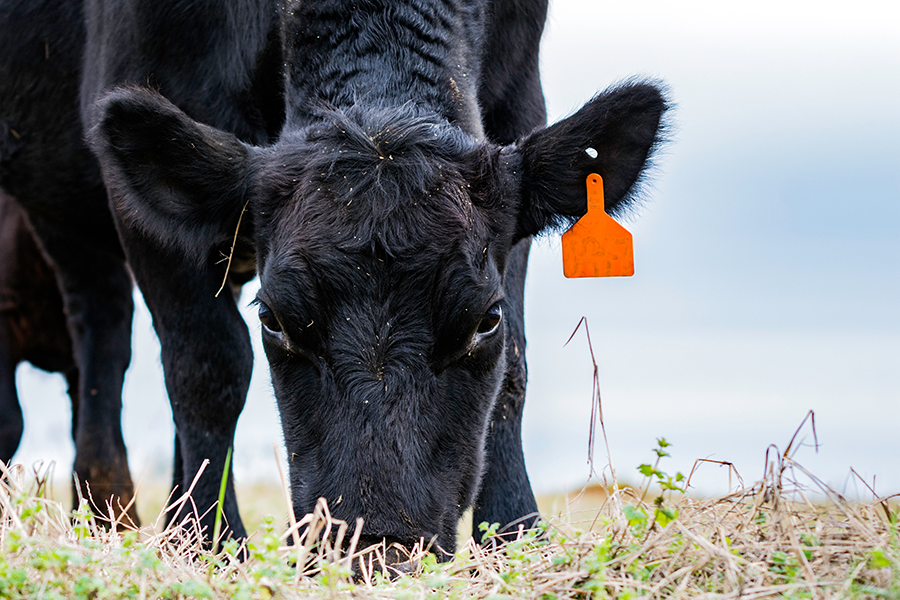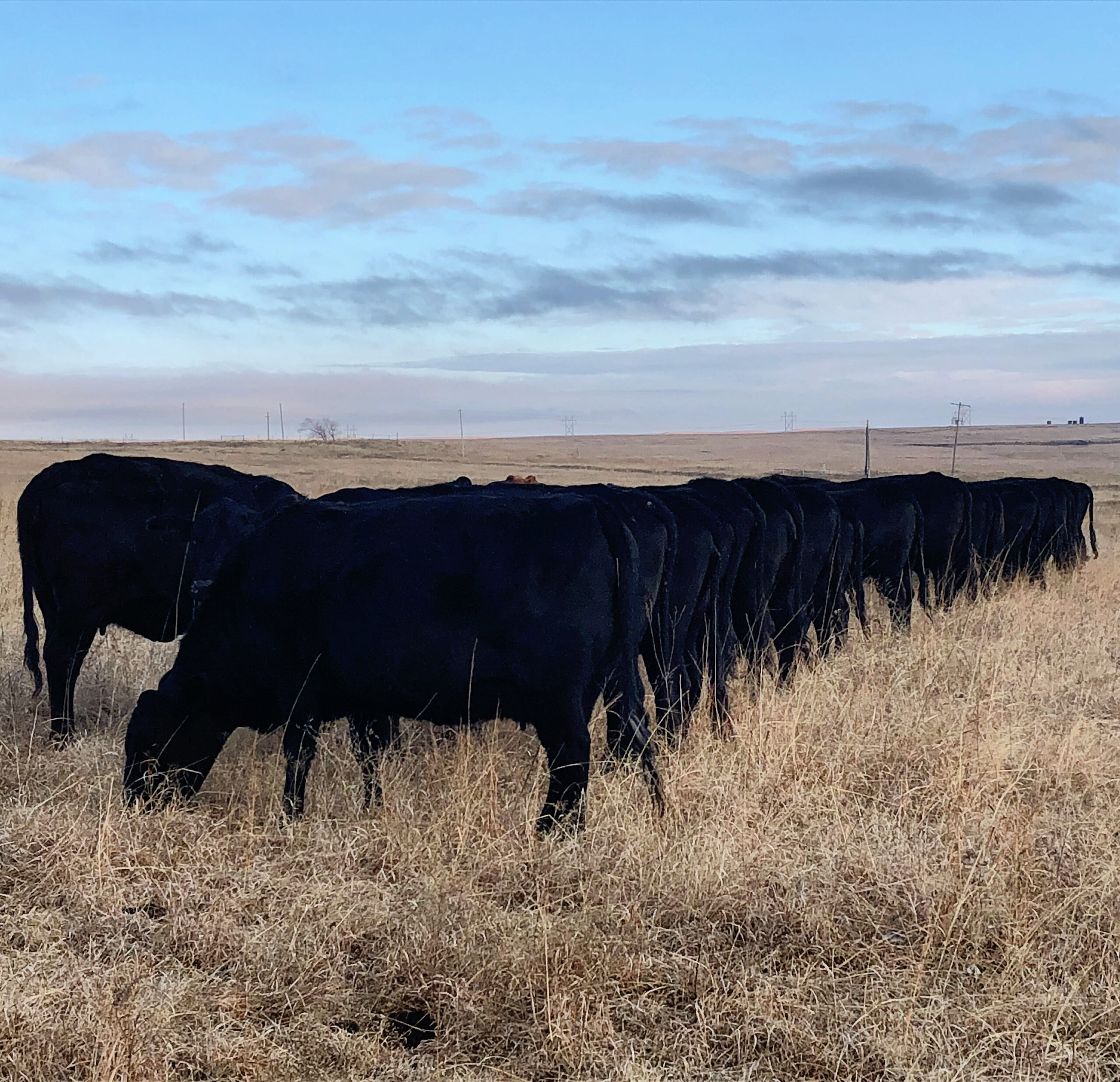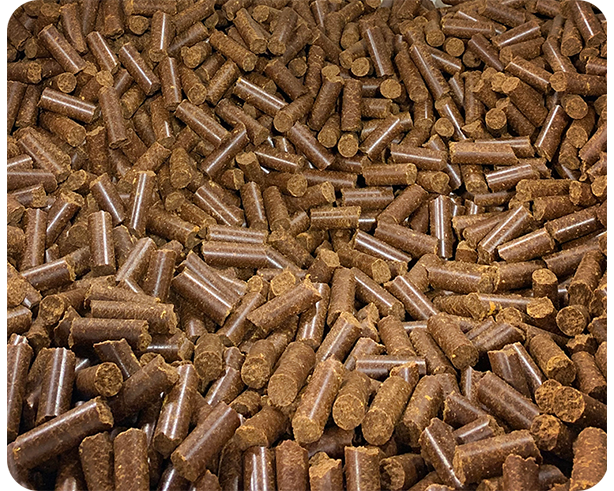With cold weather on its way, feed prices reaching historic highs and many producers already having to make costly management decisions to survive a record-breaking drought, it’s easy to understand why you might be tempted to scale back on your normal winter nutrition plan.
On the other hand, available forage in much of the cattle-producing areas of the country is either low quality or nearly non-existent. Meanwhile, as the spring-calving cowherd moves into the third trimester nutrient needs are skyrocketing.
In years like this, it’s more important than ever to plan ahead and double down on the most efficient, nutrient-rich feed products to fill the gaps.
Meeting Third Trimester Nutrient Needs
During the last three months of gestation, a cow’s enery needs increase rapidly as she pours nutrients into her growing calf. Approximately 70% of calf growth occurs during this third trimester, and if those fetal nutrient needs aren’t met it can have significant negative impacts on both cow and calf. Without enough energy stores in her body, cows may have more difficulty calving, lactating and rebreeding promptly. Calves tend to have lower birth weights, decreased long-term growth and a compromised immune system. On the other hand, research shows properly maintaining, or ideally improving, cow body condition prior to calving improves calving success rates, calf performance and reproductive efficiency.
Talk with a MHM feed expert today. Schedule a consult now!
For a cow-calf producer, it’s important to recognize the long-term benefits of a proper nutrition program far outweigh the short-term expense of winter supplementation. A significant drop in pregnancy percentage next spring will cost far more than this winter’s feed bill.

Accurately Evaluate Feed Supplements
But with so many supplements on the market, how do you decide which product fits your operation? The first step is to be sure you’re comparing products on a cost per nutrient or cost per head basis rather than simply on price per ton. Price per ton can be misleading until you put pencil to paper, considering the nutrient analysis of the products, the pounds fed per day and the amount of forage needed.
For instance, compare the costs of a traditional 20% protein range cube to MasterHand Milling’s distillers grain extruded range cubes with 28% protein. Today’s current value for the 20% cube is $377 and DDG cubes are $453 per ton. Thanks to the highly concentrated protein and fat (7% min. guarantee) of the DDG cubes, a producer can expect to feed significantly fewer pounds per day than with other lower nutrient products.

In this example, we’ll compare using 6 lbs per head per day of the 20% cubes and 4 lbs per head per day of DDG cubes. By calculating a cost per pound ($0.23 and $0.19 for DDG and 20% cubes respectively) and then multiplying by pounds fed per day (4 lbs. for DDG and 6 lbs. for 20%), we arrive at a cost per head per day of $0.92 using DDG cubes and $1.14 using traditional 20% cubes. While the 20% cubes were cheaper per ton, the amount of feed necessary to meet nutritional requirements actually makes them more expensive than the higher priced DDG cubes.
Another simple calculation can help you identify the nutrient you are focused on (typically protein or energy) and compare products based on the cost of that nutrient. Using the above scenario and calculating for cost per pound of protein, we find DDG cubes provide protein at a cost of $0.81 per lb. and 20% range cubes at a cost of $0.94 per pound.
Download our Cost Comparison Calculator to do your own math. Download now!
As the above example shows, choosing the right feed product is about more than just comparing sticker prices, especially during the winter season. Take steps now to evaluate your cows’ body condition, analyze your available forage and compare feed products. Fill out the form below to talk with a MasterHand Milling representative about 100% distillers grain cubes and how they can impact your operation.


